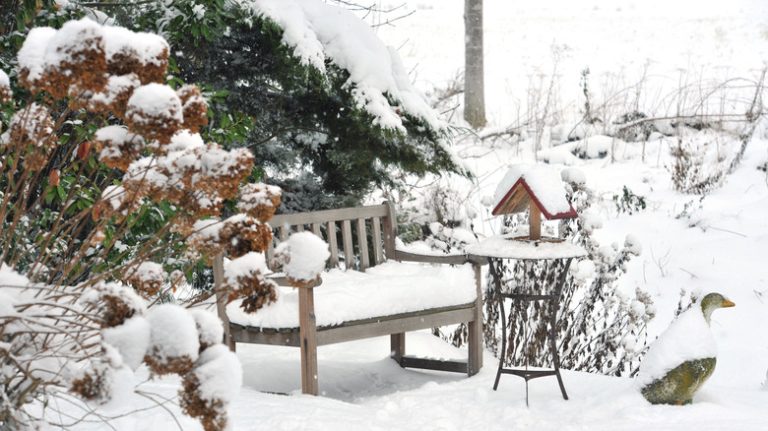Today, many gardeners are turning their attention to cannas. With their vibrant flowers, lush foliage, and easy care, it’s no wonder that cannas are becoming such a popular choice for planting in borders and containers. But what do you do with your cannas when winter comes?
Cannas are a type of perennial lily, and like all lilies, they go dormant in the winter. During this time, the foliage dies back and the bulbs (or rhizomes) need to be carefully dug up and stored until spring. If you’ve never stored canna bulbs before, don’t worry! We’ve got some tips to help you keep them in the best condition possible.
When digging up your cannas, it’s important to remove the foliage first. This helps prevent rotting and allows the bulbs to store more easily. Carefully lift the bulbs from the ground with a garden fork or spade, taking care not to damage them. If your cannas are in containers, simply remove the entire plant and gently shake off any excess soil.
Once the bulbs are removed from the ground or containers, it’s time to prepare them for storage. Start by cutting back any remaining foliage to about 2-3 inches above the bulbs. Then, gently wash off any soil and inspect the bulbs for any signs of rotting or damage. If you notice any soft spots or mold, carefully remove them with a sharp knife. It’s better to be safe than sorry!
Before storing your cannas, it’s important to let them dry out completely. Lay them out on a tray or newspaper in a cool, dark, and well-ventilated area. This allows any excess moisture to evaporate and prevents the bulbs from rotting. Let them dry for about a week, checking occasionally to make sure there are no signs of mold or rotting.
Once your cannas are dry, it’s time to store them for the winter. There are a few different methods you can choose from, depending on your preferences and available space. Some gardeners like to store the bulbs in containers filled with a mix of peat moss, vermiculite, or wood shavings, while others prefer to use paper bags or mesh bags. Whatever method you choose, make sure the bulbs are stored in a cool, dry place that does not freeze.
By following these tips, you can ensure that your cannas are ready to spring back to life next year. So don’t let your bulbs go to waste – give them a little extra care and enjoy their beauty year after year!
How to Dig Up and Store Canna Bulbs for Winter
If you live in an area where winters are harsh and frosty, it is important to dig up and store your canna bulbs in order to protect them and ensure their survival for the next growing season. Here are some steps you can follow to properly dig up and store your canna bulbs:
- Start by cutting back the foliage of your canna plants, leaving about 6 inches of stem aboveground.
- Choose a dry day to dig up the bulbs. Use a shovel or garden fork to carefully dig around the bulbs, making sure not to damage them.
- Gently lift the bulbs out of the ground and shake off any excess soil. Remove any dead or damaged bulbs, as they may lead to rotting in storage.
- Before storing, allow the bulbs to dry out for a few days in a warm, well-ventilated room.
- Once dry, trim off any remaining foliage close to the bulb and dust them with a fungicide to prevent any fungal diseases during storage.
- Choose a storage container that allows for good airflow, such as a cardboard box or a mesh bag. Avoid storing the bulbs in plastic bags, as this can cause them to sweat and rot.
- Place the bulbs in the storage container, making sure they are not touching each other. You can add some absorbent material, such as shredded newspaper or coconut coir, to help absorb excess moisture.
- Store the container in a cool, dry location, with temperatures ideally between 45-50°F (7-10°C). A basement or garage can be a good choice.
- Periodically check on the bulbs during the winter to make sure they are not rotting or becoming moldy. If you notice any signs of rot or disease, remove the affected bulbs immediately.
- In early spring, when the danger of frost has passed, you can start preparing your canna bulbs for planting. Simply remove them from storage, inspect them for any signs of damage or decay, and get them ready for planting.
By following these steps, you can ensure that your canna bulbs survive the winter and are ready to grow again in the spring. Proper storage and care are essential for the long-term health and vitality of your canna plants.
For more information on canna bulb storage and other gardening tips, subscribe to our newsletter or visit our website.
What Is a Rhizome
In the cultivation and care of cannas, one term that often comes up is “rhizome.” But what exactly is a rhizome?
A rhizome is a modified stem that grows horizontally underground. It is an important part of the canna plant as it serves as a storage organ. The rhizome stores nutrients and energy, allowing the plant to survive during colder months or periods of dormancy, and then sprout and grow when conditions are favorable.
Similar to bulbs, rhizomes are used as a method of propagation for cannas. They are typically removed from the plant after flowering or at the end of the growing season, in preparation for winter storage. Rhizomes can be carefully dug up, with the attached foliage trimmed down, and then stored for the winter.
Storing cannas rhizomes is an important step in their aftercare. It helps ensure the survival of the plant from one year to the next. Proper storage can also allow gardeners to divide the rhizomes and multiply the number of cannas they have. There are various methods for storing cannas rhizomes, but one popular option is to store them in plastic containers or bags filled with a moistened growing medium, such as coconut coir or peat moss.
When storing cannas rhizomes, it’s important to keep the containers in a cool, frost-free room. Inspecting the rhizomes periodically throughout the winter is also recommended to check for any signs of rot or mold. If any issues are discovered, the affected rhizomes should be removed to prevent further spread.
In summary, a rhizome is a modified stem that stores nutrients and energy for the canna plant. It is used for propagation and storage, allowing the plant to survive during the winter and sprout again in spring. Proper care and storage of cannas rhizomes ensures their long-term survival and provides opportunities for division and multiplication.
Source: Carole Beaulieu – Gardening Know How
Canna Bulb Storage – Tips For Storing Canna Bulbs
Storing canna bulbs properly is essential to ensure their survival and promote healthy growth in the next growing season. By following the tips below, you can apply the right storage techniques and keep your canna bulbs in excellent condition until it’s time to plant them again.
1. Dig up the bulbs: When the flowering season is over, dig up the canna bulbs carefully. Use a garden fork or spade to gently lift the bulbs from the soil, being careful not to damage them.
2. Inspect and trim: Examine the bulbs, removing any damaged or rotten parts. Trim off any excess roots, allowing around 1 inch to remain attached to the bulbs.
3. Dry the bulbs: Spread the bulbs out on a flat, dry surface like a wooden or plastic tray. Keep them in a dry and warm room for about a week to allow them to thoroughly dry out.
4. Store in containers: Once the bulbs have dried, place them in containers for storage. Use breathable containers like mesh bags, cardboard boxes with holes, or paper bags to prevent rotting. Avoid using airtight plastic bags, as they can trap moisture and lead to mold or fungal growth.
5. Choose a storage location: Find a cool and frost-free spot for storing canna bulbs. A temperature of around 50 to 60 degrees Fahrenheit (10 to 15 degrees Celsius) is best. Avoid storing them in areas that are too hot, cold, or humid, as these conditions can damage the bulbs.
6. Check them regularly: Periodically check the canna bulbs during storage to ensure they are in good condition. If you notice any signs of rot or mold, remove the affected bulbs immediately to prevent it from spreading to the others.
By following these tips for canna bulb storage, you can ensure that your bulbs stay healthy and ready to be planted again in the next growing season. Proper storage allows you to enjoy beautiful blooms year after year.
Preparing Cannas For Canna Bulb Storage
Before storing your canna bulbs, it’s important to properly prepare them to ensure their survival through the winter months. Here are some tips to help you get your cannas ready for storage:
1. Start by cutting back the foliage to about 4-6 inches above the soil level. Remove any dead or brown leaves, and be sure to clean off any dirt or debris that may be clinging to the bulbs.
2. If your cannas are still in the ground, carefully dig them up, taking care not to damage the bulbs or rhizomes. Gently lift them out of the soil, shaking off any excess dirt.
3. Once you have the bulbs out of the ground, let them dry out for a few days. Place them in a warm, dry location where they can air out and the skin can cure. This will help prevent rotting and disease during storage.
4. If you live in an area that experiences freezing temperatures, you will need to store your cannas indoors for the winter. Choose a location that stays consistently cool, around 36-50 degrees Fahrenheit (2-10 degrees Celsius). An unheated basement, garage, or closet is typically a good option.
5. For long-term storage, you can pack the bulbs in packing material like peat moss or sawdust. Place the bulbs in a plastic bag or container with holes for ventilation. Avoid storing the bulbs in airtight containers, as this can lead to excessive moisture and rot.
6. Some gardeners choose to store their cannas in a specific type of growing medium, like vermiculite or perlite. These materials help to maintain a consistent level of moisture and provide insulation for the bulbs.
7. Remember to label your stored cannas with the variety and the date they were stored. This will help you keep track of your bulbs and ensure you know which ones to replant next spring.
By following these tips, you can ensure that your cannas have the best chance of surviving the winter and thriving when it’s time to plant them again.

